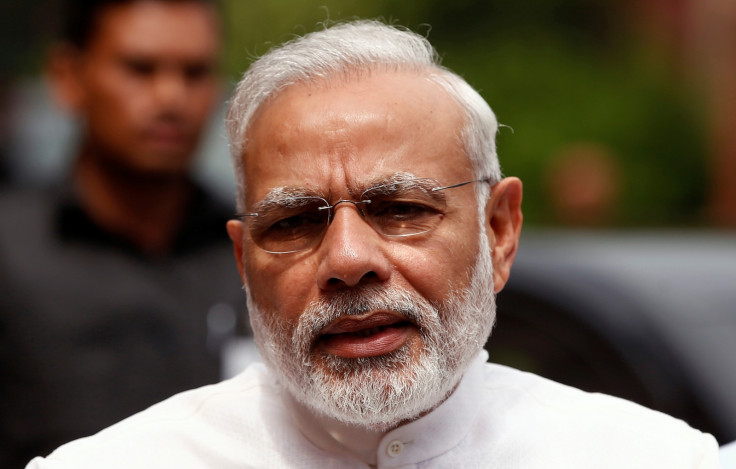India embarks on historic tax reform as parliament passes 'one nation, one tax' bill
Estimates suggest the ambitious tax overhaul would boost India's GDP by 2% once it comes into effect.

The Indian parliament has passed the long-awaited Goods and Services Tax (GST) bill, preparing the way for the country to move towards a "one nation, one tax" policy. The bill was stuck in a parliamentary gridlock for more than year due to domestic political differences.
The Rajya Sabha (upper house) of the Indian parliament approved the bill with an overwhelming majority late in the night on Wednesday, 3 August. The GST has been one of Prime Minister Narendra Modi's pet policies in order to iron out issues in the existing tax system that is fragmented and convoluted.
In what has been heralded as a historic step, this will bring in the country's more than 1.25 billion people under a single market for the first time since Independence. The step will also recalibrate the equations between the federal government and the statesinside a country known for its notoriously cumbersome procedures to run businesses besides its bureaucratic hurdles. Businesses and economists have long been lobbying for serious economic reforms to rejuvenate the country's antiquated fiscal system.
However, prices of some products are also expected to rise sharply as the ambitious tax policy is skewed in favour of the manufacturing sector and the services sector could take a hit. The GST, an indirect tax policy, will subsume an array of federal- and state-imposed taxes such as service tax, entertainment tax, excise duty and value-added tax across the vast country. This will help in getting rid of the cascading effects of those taxes making the tax structure more effective.
Once the bill comes into force it would drastically transform the $2tn (£1.5tn) economy by reducing costs for shipping goods from one state to another. Although the government wants to implement it in April 2017, analysts and economists have warned that it could be delayed. An optimistic estimate suggests a successful GST could boost India's gross domestic product (GDP) by 2%.
"We continue to work with all parties & states to introduce a system that benefits all Indians & promotes a vibrant & unified national market," Modi wrote on Twitter after the bill was passed. "I would like to add that GST will also be the best example of cooperative federalism. Together we will take India to new heights of progress."
On this truly historic occasion of the passage of the GST Bill in the Rajya Sabha, I thank the leaders and members of all parties.
— Narendra Modi (@narendramodi) 3 August 2016
Our MPs must be congratulated for their path breaking decision to give India an indirect tax system for the 21st century. #TransformingIndia
— Narendra Modi (@narendramodi) 3 August 2016
The constitutional amendments of the bill were stymied by the opposition political parties in the Rajya Sabha, where Modi's Bharatiya Janata Party (BJP) lacks a majority. But, the changes are likely to pass through the Lok Sabha (lower house) swiftly as Modi's party has the necessary numbers. Moving forward, the bill, which is only a necessary condition for a GST but not a sufficient one, needs to be ratified by a majority of the 29 states and seven union territories — which would involve lengthy negotiations. Still, the key parliamentary approval has been widely hailed.
Reacting to the Rajya Sabha's approval, Chanda Kochhar, chief of India's biggest private lender ICICI Bank, said in a statement: "The Goods and Services Tax (GST) Bill is the most important reform in indirect taxation in India ever. It signals the Government's resolve to put in place a significant structural change which will benefit all segments of the economy. Consumers will see lower prices in the medium term, businesses will able to operate more efficiently and the Government will see a broadening of its tax base along with ease of tax collection."
Passing 122 Const. amend. Bill 2014 #GST in RS today is a historic event. It would herald one market-one nation, a way to #TransformingIndia
— Arun Jaitley (@arunjaitley) 3 August 2016
© Copyright IBTimes 2025. All rights reserved.






















